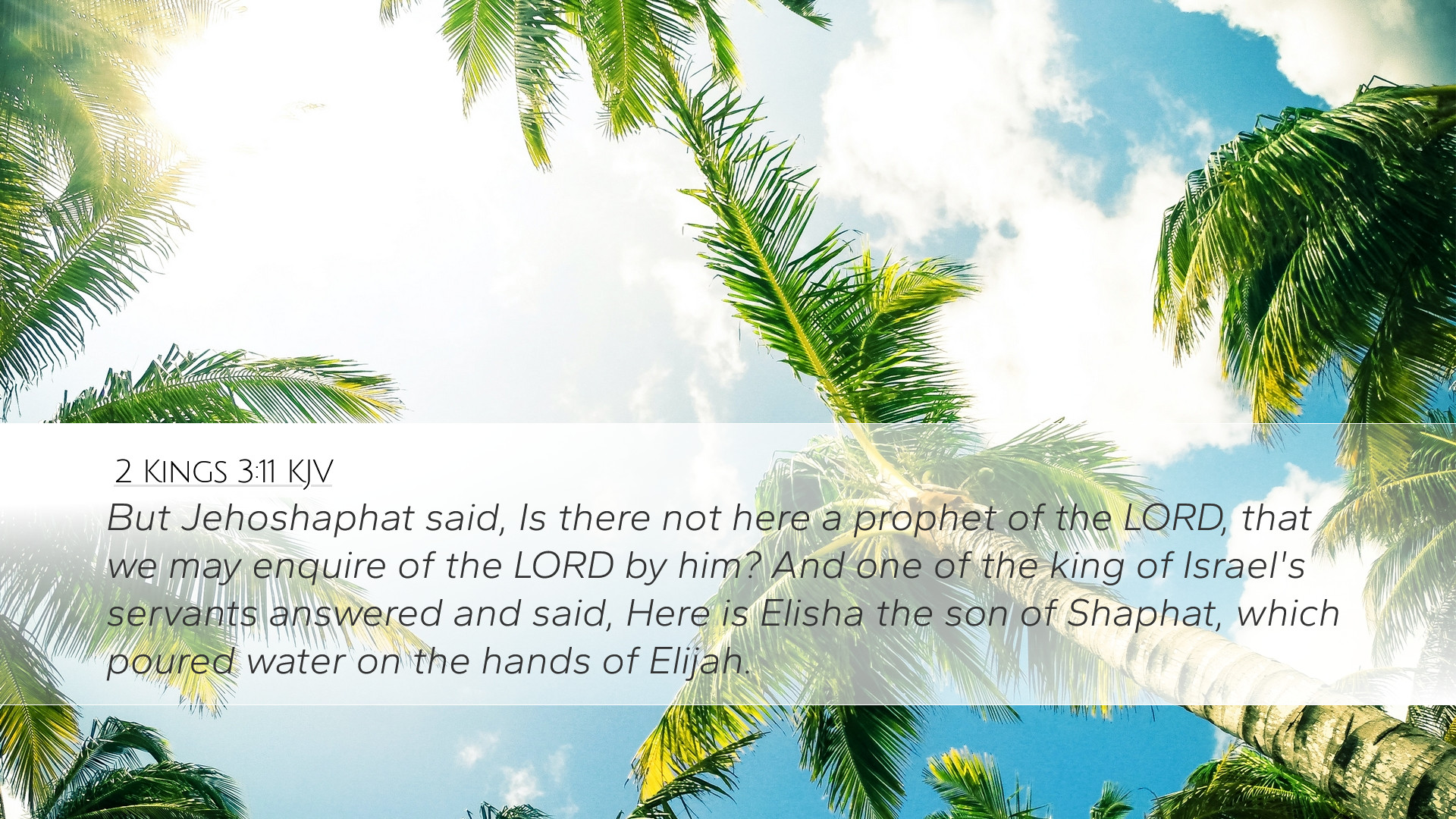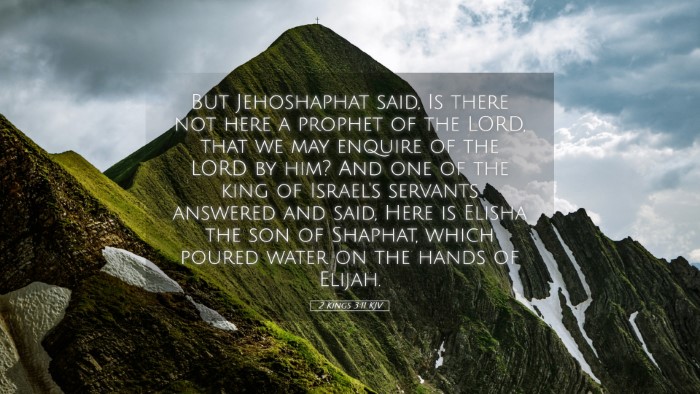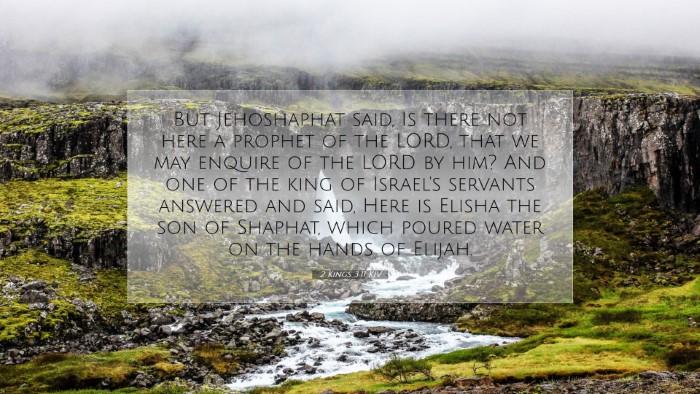Commentary on 2 Kings 3:11
Verse Context: 2 Kings 3:11 states: "But Jehoshaphat said, 'Is there no prophet of the LORD here, that we may inquire of the LORD by him?' So one of the servants of the king of Israel answered and said, 'Elisha the son of Shaphat is here, who poured water on the hands of Elijah.'"
This passage occurs during a critical period when the kings of Israel (Joram) and Judah (Jehoshaphat), along with the king of Edom, embark on a military campaign against Moab. The inquiry of Jehoshaphat about a prophet of the LORD indicates the importance of divine guidance in military and national affairs, a recurrent theme in the history of Israel and Judah.
Insights from Commentaries
-
Matthew Henry:
Henry emphasizes the spiritual oversight needed in times of crisis. Jehoshaphat’s question for a prophet exhibits his commitment to seeking divine input before engaging in war. Unlike Joram, who is more concerned with military might, Jehoshaphat understood that victory comes from the Lord. This distinction between the two leaders highlights the significance of faith versus folly in leadership.
-
Albert Barnes:
Barnes notes that Jehoshaphat’s inquiry was not merely a formality but stems from a sincere desire for God’s counsel. His recognition of Elisha, who served Elijah, reflects the continuity of prophetic authority from Elijah to Elisha. This moment sets the stage for divine intervention which greatly influences the outcome of their military venture against Moab.
-
Adam Clarke:
Clarke links this passage to the broader narrative of the prophetic ministries, discussing how the role of a prophet in Israel was central to conveying God’s will to the people and their leaders. He also points out that Elisha’s humble beginnings as a servant to Elijah demonstrate that true spiritual power does not come from position but from a close relationship with God. The mention of Elisha pouring water on Elijah’s hands symbolizes servanthood and readiness to minister.
Theological Implications
-
Prophetic Guidance:
This passage underscores the necessity of prophetic guidance in decision-making. The desire to consult a prophet illustrates the belief that divine insight is essential for national leaders. It serves as a reminder to contemporary leaders to seek wisdom from God in their decisions, especially in significant matters.
-
The Role of Servanthood:
The reference to Elisha as the servant of Elijah highlights the biblical principle of servanthood as a pathway to spiritual authority. This aspect encourages both leaders and congregants to embrace humility and service as essential components of their faith journey and leadership roles, reaffirming that those who serve faithfully are often called to greater responsibilities.
-
Contrast in Leadership:
The contrasting approaches of Jehoshaphat and Joram reflect a significant theological theme—the reliance on God versus human wisdom. Jehoshaphat’s actions suggest that faith-filled leadership seeks God’s will, while Joram’s lack of interest in divine counsel reveals a fundamental disconnection from God’s authority. This serves as a poignant lesson for leaders today to prioritize the spiritual dimensions of their leadership.
Practical Applications
-
Seek God in Decision Making:
Just as Jehoshaphat sought the prophet’s counsel, modern leaders and believers are encouraged to seek God's guidance through prayer, scripture, and wise counsel in their decisions.
-
Value of Prophetic Voices:
This passage highlights the relevance of prophetic voices in the community of believers today. Whether through preaching, teaching, or personal encouragement, believers should be attuned to the ways God speaks through others.
-
Embrace Humility and Service:
Elisha’s example of service prompts believers to cultivate a spirit of humility and to find joy in serving others, understanding that this may lead to unexpected opportunities for ministry and leadership in the future.
Conclusion
In conclusion, 2 Kings 3:11 illustrates profound truths about seeking divine guidance, the significance of prophetic ministry, and the characteristics of effective leadership. It challenges the modern reader to reflect on their own reliance on God’s wisdom and the value of a servant-hearted approach in all aspects of life. The narrative calls for a renewed commitment to following God’s leading in both personal and communal matters, assuring believers that God’s guidance will be present when sought with a sincere heart.


